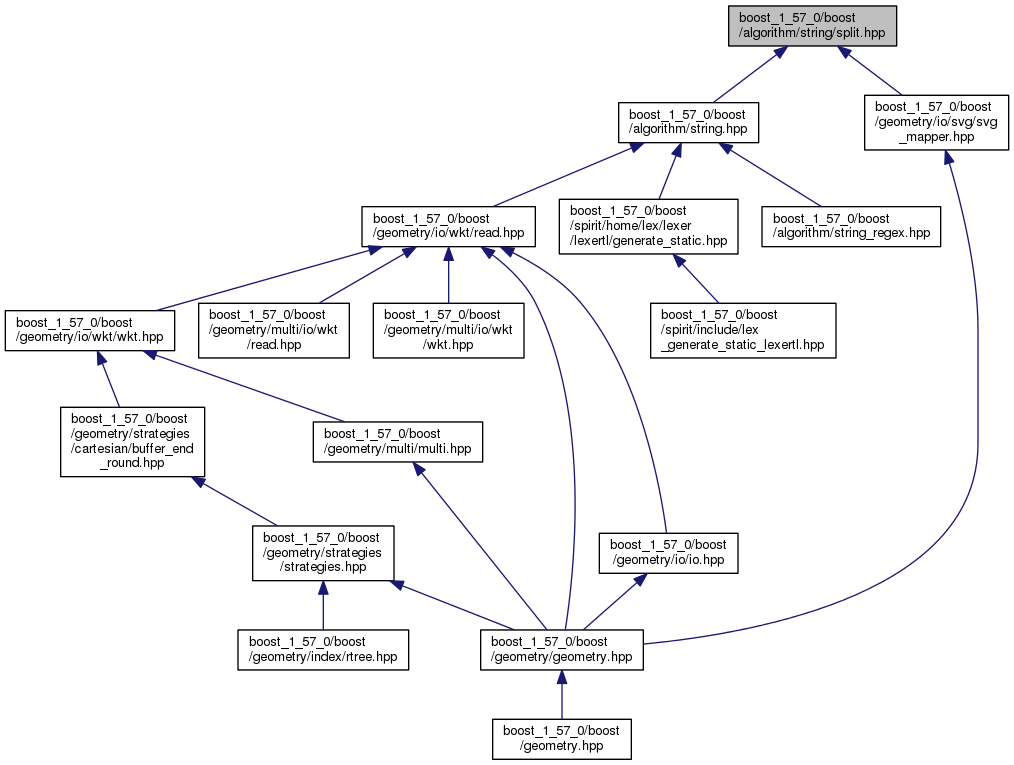Defines basic split algorithms. More...
#include <boost/algorithm/string/config.hpp>#include <boost/algorithm/string/iter_find.hpp>#include <boost/algorithm/string/finder.hpp>#include <boost/algorithm/string/compare.hpp>

Namespaces | |
| boost | |
| Duration formatting facet for input. | |
| boost::algorithm | |
Functions | |
| template<typename SequenceSequenceT , typename Range1T , typename Range2T > | |
| SequenceSequenceT & | boost::algorithm::find_all (SequenceSequenceT &Result, Range1T &Input, const Range2T &Search) |
| Find all algorithm. More... | |
| template<typename SequenceSequenceT , typename Range1T , typename Range2T > | |
| SequenceSequenceT & | boost::algorithm::ifind_all (SequenceSequenceT &Result, Range1T &Input, const Range2T &Search, const std::locale &Loc=std::locale()) |
| Find all algorithm ( case insensitive ) More... | |
| template<typename SequenceSequenceT , typename RangeT , typename PredicateT > | |
| SequenceSequenceT & | boost::algorithm::split (SequenceSequenceT &Result, RangeT &Input, PredicateT Pred, token_compress_mode_type eCompress=token_compress_off) |
| Split algorithm. More... | |
Defines basic split algorithms.
Split algorithms can be used to divide a string into several parts according to given criteria.
Each part is copied and added as a new element to the output container. Thus the result container must be able to hold copies of the matches (in a compatible structure like std::string) or a reference to it (e.g. using the iterator range class). Examples of such a container are std::vector<std::string> or std::list<boost::iterator_range<std::string::iterator>>